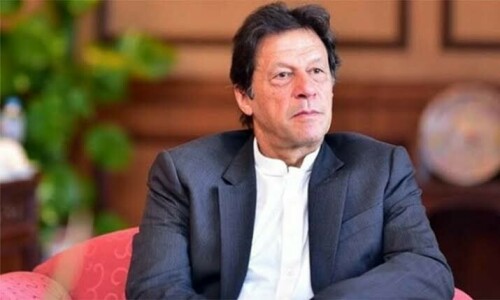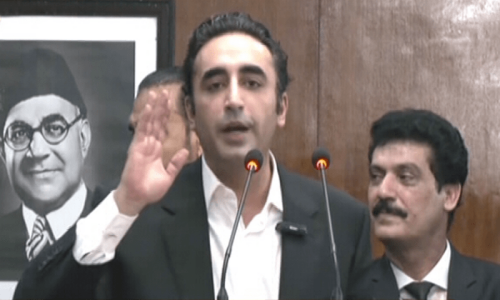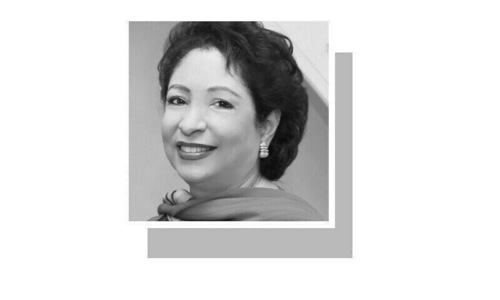THE coronavirus pandemic has upended social, political and economic routines across the globe. Routine activities that were not too long ago totally kosher have now been suspended as per the requirements of social distancing. Marriages, funerals and all other social events where a large number of people gather have now been cancelled or scaled down to the bare essentials. As for mass worship, most religious institutions around the world, including in Muslim states, have advised believers to pray at home instead of attending places of worship. Pakistan had taken similar steps, with varying degrees of enforcement on the part of the state in various provinces, and adherence by the general public. However, with the month of Ramazan due to start at the end of next week, the matter of mosque attendance is one of urgency. A meeting on Saturday of the president with ulema belonging to different sects sought to address this key issue.
What emerged from the conclave of the clergy and President Arif Alvi is a 20-point ‘action plan’ that suggests various guidelines for the holy month related to mass gatherings. While the plan has given the green light for taraweeh and congregational prayers, it has also offered some precautions, such as observance of social distancing within mosques, disinfection of masjids etc. Interestingly, the 20th point highlights the fact that the state can “review and change ... its policy if ... the rise in cases was exponential”. This point, perhaps, clinches the issue. The fact is that by allowing congregational prayers to go ahead, the state has taken a huge risk. Freedom of worship should be guaranteed, but when the risk of infection is so acute, why take such a questionable decision? Moreover, the prime minister also observed that infections may rise in May. If this is the case, the state should have taken a more firm stance with the clerics.
Moreover, our clergymen need to see what other Muslim states are doing in this situation. Saudi Arabia’s grand mufti has said taraweeh and even Eidul Fitr prayers should be offered at home, while Iran’s supreme leader earlier said that mass gatherings in Ramazan were unlikely to go ahead. If these two Muslim states — which many believers across the world look to for guidance on religious matters — as well as others such as Egypt and Turkey can take firm decisions on suspension of congregational prayers, what makes our clergymen take such rigid positions? There is strong evidence that lack of observance of social distancing during religious events — the Tableeghi Jamaat ijtema, for example — has led to a spike in Covid-19 cases. In the face of such facts, the state’s decision to allow congregational worship during Ramazan is a matter of concern, and if there is the slightest evidence that cases are shooting up in the aftermath of mass religious gatherings, the government needs to take a firm decision.
Published in Dawn, April 19th, 2020








































